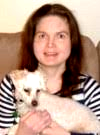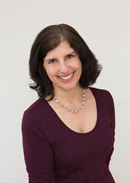Caring for the Caregiver
by RNE submissions on 01/07/18
By Joanna Mechlinski
January 2018
When a loved one lives with a rare disease, it's easy to get caught up in his or her needs. After all, a person living with a serious disease or disorder may require countless hours for doctor's or hospital visits, medication or treatments, and assistance with day-to-day tasks from household chores to personal hygiene. The caregiver may also become involved with advocacy for the patient's needs or recognition of the disease itself, be it among policymakers or insurance companies. Your family member or friend's needs may become all-encompassing, both physically and mentally. That's why, with the start of a new year, it's important for caregivers to resolve to focus on themselves, too.
According to the National Alliance for Caregiving, some 30 million Americans live with a rare disease or condition. Many receive unpaid care from family or friends – often as many as 20 hours per week, in addition to their outside jobs. These caregivers are tasked with not only the person's physical needs but also emotional, as there may be difficulty with finances, in obtaining medication or adequate medical care. For some, their disease's symptoms may be unpredictable and the longterm outcome may be uncertain.
The Caregiver Action Network stresses the importance of accepting help from others. In giving yourself time away, you will maintain your physical and emotional wellbeing, so that you will ultimately be better able to care for your loved one. Don't be afraid to reach out to others, even for a few hours or a specific task. Seeking respite is not a sign of weakness! In addition, CAN emphasizes networking with other caregivers. Not only is it a chance to vent and share ideas with others who have similar challenges, it's important to remember that there are many others just like you.
To connect with others and find more tips on caregiving, you can Google disease-specific organizations or check out sites like National Organization for Rare Disorders (NORD) at rarediseases.org, Caregiver Action Network (CAN) at rarecaregivers.org or caregiveraction.org



